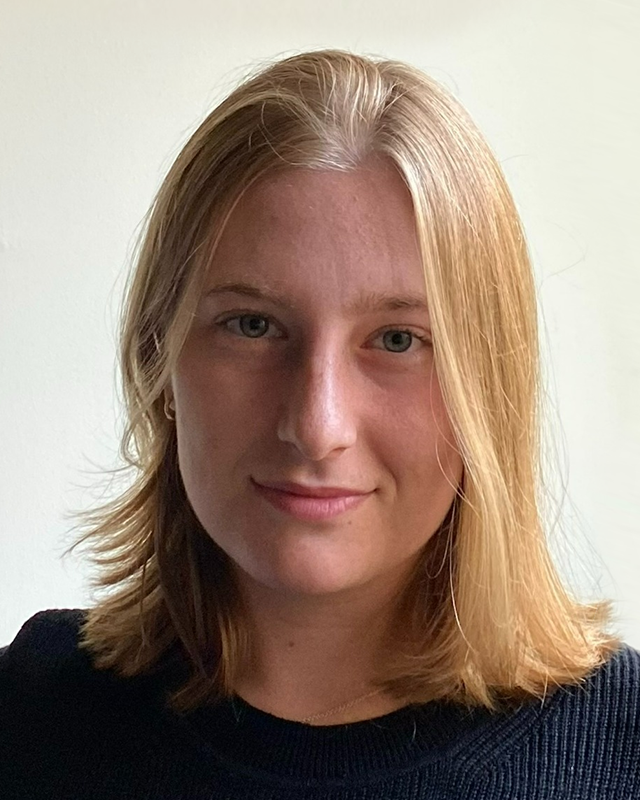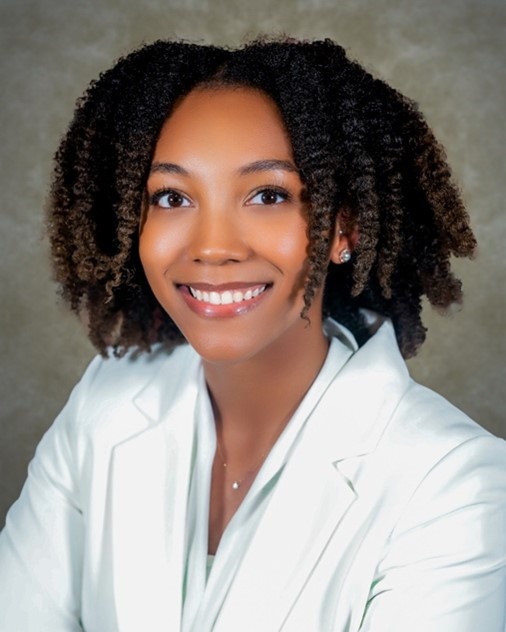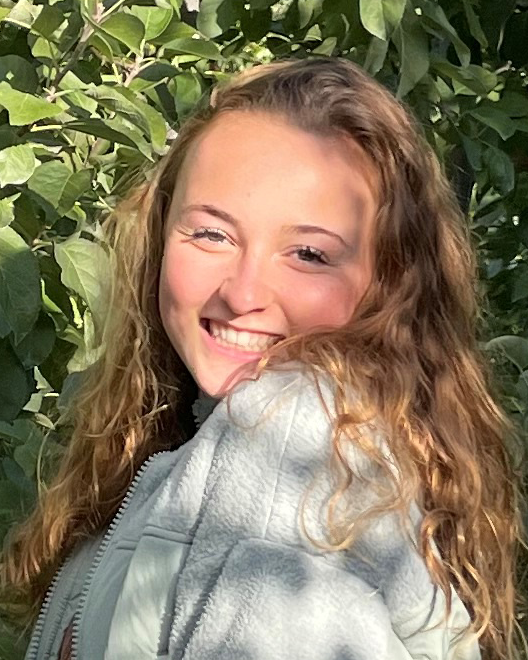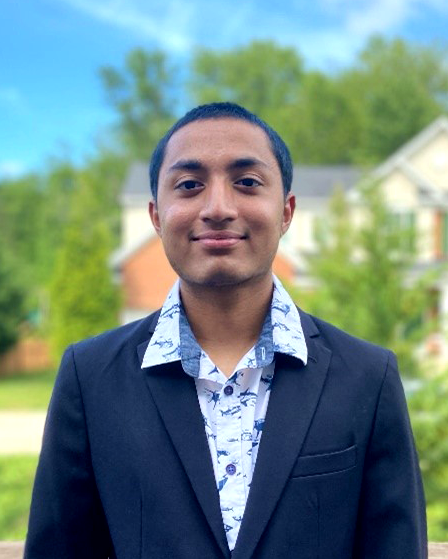
The NIH Summer Internship Program gives high school, college, and graduate/professional school students an opportunity to experience biomedical research alongside some of the leading scientists in the world, in an environment that encourages curiosity and personal growth. Summer students have the opportunity to design and conduct an independent research project under the supervision of a research mentor while also gaining exposure to important career development activities and skill-building workshops.
To welcome the 2023 NICHD Summer Internship Program participants, we profiled several former interns to highlight the breadth of experiences that can be gained through the program, and we invited each intern to share their top tips for summer success.
Julia Grafstein

Julia Grafstein
For the past few years, Julia Grafstein participated in the summer program in the laboratory of Karl Pfeifer, PhD, Senior Investigator in the Section on Epigenetics. Last summer, her research included behavioral testing of Wapl-deficient mice using central nervous system disorder assessments.
Exposure to multiple research projects helped Ms. Grafstein clarify her long-term research goals. Based on her summer internship experiences, she homed in on a goal to pursue a doctoral degree in genetics.
In addition to revealing her career interest, Ms. Grafstein said that the summer program taught her how to adapt to working on new projects, create her own posters, and complete data analysis. Importantly, the summer internship improved her presentation and scientific inquiry skills, which she felt made her a better scientist overall.
Ms. Grafstein’s summer experience was not without challenges. For example, she struggled with designing a project appropriate in scope for the eight-week internship and learning to analyze the data efficiently. But Ms. Grafstein overcame these challenges by reading extensively about the topic and consulting with other members of the lab.
Ms. Grafstein’s Tips for Success:
I highly recommend summer interns take advantage of the classes, journal clubs, and opportunities at the NIH Clinical Center because they offer great exposure to topics one may not otherwise come across. For example, I went to a journal club on the science of sexuality, which was completely different from what I was working on in my lab and it allowed me to have some guidance when discovering a new subject.
A tip I have for making the most of the summer program is to start on the poster for Summer Poster Day early so you can present it to members of your lab and get their advice on how to best present all the research you have from over the summer.
Summer Poster Day 2023
Summer Poster Day 2023 will take place in person on August 3rd and virtually on August 4th. Check out the following pages for helpful information:
Nita Kanney, MPH

Nita Kanney, MPH
Nita Kanney, MPH, joined the laboratory of Edwina Yeung, PhD, Senior Investigator in the Epidemiology Branch, to participate in an epigenome-wide association study of newborn DNA methylation in the Upstate Kids Study. She also participated in science dissemination for the Study of Pregnancy & Neonatal Health.
Among Ms. Kanney’s achievements during her summer internship, the creation of an infographic about epigenetics was particularly memorable. She found that the process of creating the visual helped improve her ability to talk about the topic with a lay audience. Additionally, Ms. Kanney was proud of her work with NIH Biowulf, a high-performance computing system, which she used to perform an epigenome-wide association study.
Meeting the exceptional staff, postdocs, and scientists who contributed to those projects was a highlight of Ms. Kanney’s experience with NICHD. As was the support she received from her mentor and lab mates.
Along with performing omics-based data analysis and writing about the results, Ms. Kanney learned how to effectively communicate complex science and public-health topics to a broad audience. This experience reinforced her decision to pursue a doctoral degree at the University of Michigan School of Public Health. Ms. Kanney plans to make her future research endeavors accessible through communication to broad audiences.
Ms. Kanney’s Tips for Success:
Be sure to regularly check your email for updates from IT and your research group. I found it helpful to complete some of the administrative work during the spring rather than the first week of my internship. I made substantial progress on my internship projects by completing these administrative tasks earlier.
I highly recommend getting involved in the various opportunities offered. I participated in the Omics Journal Club and am extremely grateful to have that experience because it aligned well with my research interests and my summer project. Through this opportunity and others, I met some incredible people working on fascinating projects. It was a comfortable environment to explore these high-level topics.
While I wasn’t able to take part in these programs, I recommended exploring events through the NIH library for training in literature reviews, publishing your research, RNA-seq analysis, and so much more. Also, you can get your CV reviewed, practice interview skills, and provide guidance on what to include in your statement of purpose from the OITE staff through their Career Services Center. No matter what stage you are at in your journey, there are training and activities for everyone.
Peyton Lee

Peyton Lee
Peyton Lee completed her summer internship in the laboratory of Claire Le Pichon, PhD, Investigator in the Unit on the Development of Neurodegeneration. Over the course of the summer, Ms. Lee worked on characterizing functional and transcriptomic changes in a mouse model of Amyotrophic Lateral Sclerosis.
Throughout her internship, Ms. Lee enjoyed hands-on exposure to the techniques that she had learned about in her biology and neuroscience courses at Colgate University. Reflecting on her time in the program, she recalled overcoming the challenge of developing independence with her project and learning how to analyze results with an unbiased and critical mind.
Ms. Lee’s appreciation for the Summer Internship Program is evident. She remained in Dr. Le Pichon’s laboratory for an additional six months as part of a Bethesda Biomedical Research study group program offered by Colgate University. After graduation, she will return to Dr. Le Pichon’s lab as a postbac for two years. Ms. Lee’s long-term goals are to attend medical school, and she says that she “values the opportunity to participate in research—work that will translate into treatment for patients in the future.”
Ms. Lee’s Tips for Success:
Before starting in the summer, I wish I had known how fast time flies! Making the most of the time in your laboratory is crucial. Research is a slow process, but there is time to complete substantial progress with a driven and confident attitude. I would recommend reaching out to members in different labs who are partaking in research that you are interested in if you are in a lab that doesn’t exactly align with your primary interests. That being said, I think it is really valuable to expand your mindset to be open to learning about concepts and techniques performed in an area that you might not be as familiar with.
Raghib Nihal

Raghib Nihal
Raghib Nihal completed his summer internship in the laboratory of Philip Adams, PhD, an Independent Research Scholar in the Group on Gene Regulation in Bacterial Pathogens. The aim of his project was to analyze transposon sequencing (Tn-seq) data in Escherichia coli for novel characteristics and to develop a high coverage plasmid for Tn-seq studies in B. burgdorferi.
When asked about his internship experience, Mr. Nihal replied that his summer internship was “one of the most impactful experiences he ever had in his academic career.” The respect that his fellow lab mates showed him—by asking about his research and encouraging him to present it to the lab—inspired him to become a better researcher.
Based on Mr. Nihal’s experience last summer, he developed an increased interest in a research career. His mentor, Dr. Adams, encouraged him to branch out to other institutes, and with Dr. Adam’s help, Mr. Nihal secured an internship at the National Cancer Institute.
Initially, Mr. Nihal thought he would focus on pursuing an MD degree without any research component. Now, however, he has an enhanced appreciation for the research side of medicine. For Mr. Nihal, his NICHD experience made him a better student, researcher, and, in his own words, an “advocate for knowledge.”
Mr. Nihal’s Tips for Success:
The number one tip for success I would have for incoming fellows is to talk with mentors or principal investigators. They are such a wealth of information that it is hard to describe. Even if there may not be an answer, the lab members can almost always point towards a resource or direct you in the correct path for you to make an informed decision. If it is project related, their experience and willingness to take you as a mentee are a testament to their involvement in your success.
There are so many resources at the NIH it is hard to put it all here. The most notable, if I had to choose, would be the Office of Intramural Training and Education (OITE) counselor appointments, career fair, and the poster day. The OITE has resources to help with grad school admissions, interviews, and any future plans one may have after the NIH. This is a resource I wish I had utilized last summer. Additionally, the Graduate and Professional School Fair has many companies and schools that advertise their programs to fellows. I would also encourage everyone to participate in the Summer Poster Day to interact with all of the other institutes at the NIH and present research to the community.
